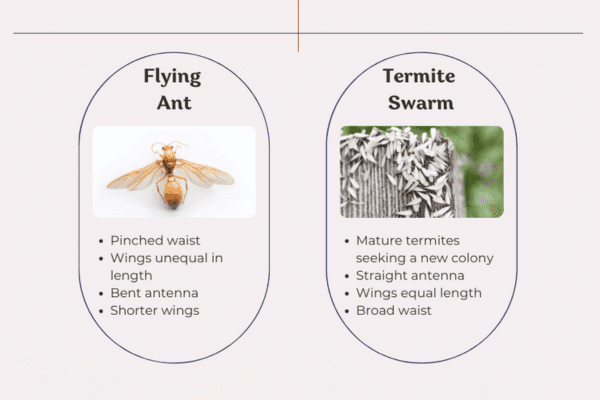Georgia is no stranger to termite issues!
Termites are a common problem in coastal Georgia, as they thrive in the warm and humid climate of the region. If you are a home or business owner, you should know what to be aware of when dealing with termite activity in Georgia. Several types of termites can be found in the state, including subterranean and drywood. Are you having termite issues in Georgia? Here is what you need to know:
Subterranean Termites
Subterranean termites are the most common type of termite in Georgia and can cause significant damage to homes and other structures. There are Eastern and Formosan subterranean termites. They typically enter buildings through cracks in the foundation or other openings in the construction and feed on wood, causing structural damage over time.
Drywood Termites
Drywood termites, on the other hand, infest dry wood and do not require contact with soil to survive. While they are less common in Georgia, they tend to prefer coastal areas, so those on the coast can be prone to damage to homes and other wooden structures.
I can’t tell if I have flying ants or termites.
Flying ants and termites are often mistaken for each other because they have similar physical characteristics and behaviors. However, some key differences between flying ants and termites can help you distinguish between them.

Physical Characteristics:
Flying ants have bent or elbowed antennae, while termites have straight antennae.
The wings of flying ants are different in size and shape, with the front wings being larger than the hind wings. In termites, both pairs of wings are the same size and shape.
Flying ants have narrow waists, while termite waists are broader.
Behavior of ants vs termites:
Flying ants are attracted to light and are often seen flying around lights at night. Termites, on the other hand, are not attracted to light and are rarely seen flying around outdoor lights.
Flying ants typically swarm during the summer months, while termites usually swarm in spring.
Why do termites swarm in Georgia?
Termites swarm because their current colony is full. The winged termites, known as “swarmers,” leave their colony to find a place to create a new one.
What do I do if I suspect a termite infestation?
If you suspect that you have a termite infestation in your Georgia home or business, it is important to contact a pest control professional as soon as possible. They can assess the extent of the infestation and recommend the best course of action to eliminate the termites and prevent further damage.
Termite Issues in Georgia? Trusted Georgia Termite Prevention
Yates-Astro has been preventing termites in homes and businesses since 1928. We evaluate each location and discuss the best protection options with builders and homeowners. Termites cause billions of dollars in homes and commercial properties every year, and we make it our mission to protect you from being part of those statistics. We also offer termite warranties along with the best termite control and protection. Contact us for a free estimate, and let us help you protect your Georgia home from termites in Savannah and surrounding areas.

